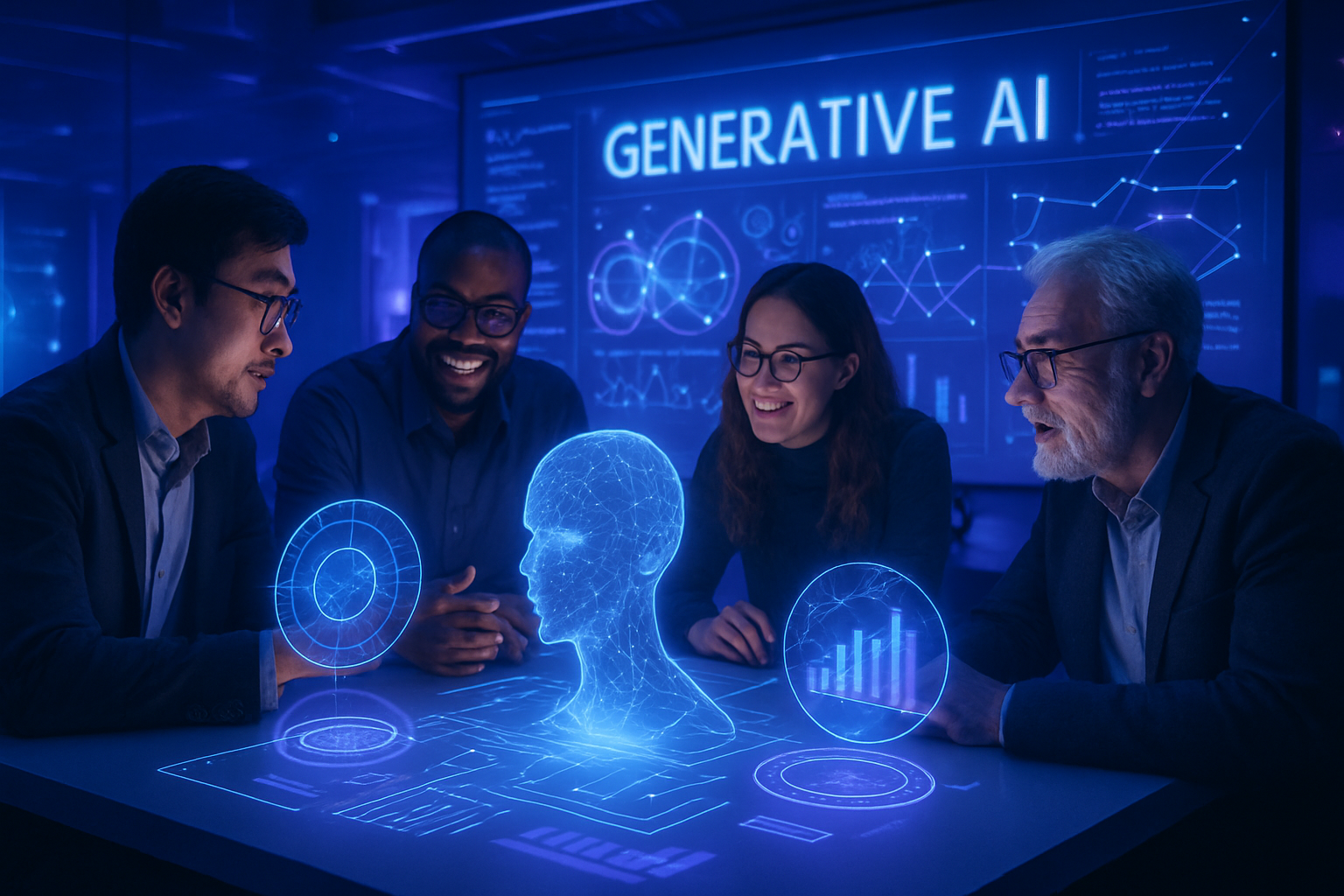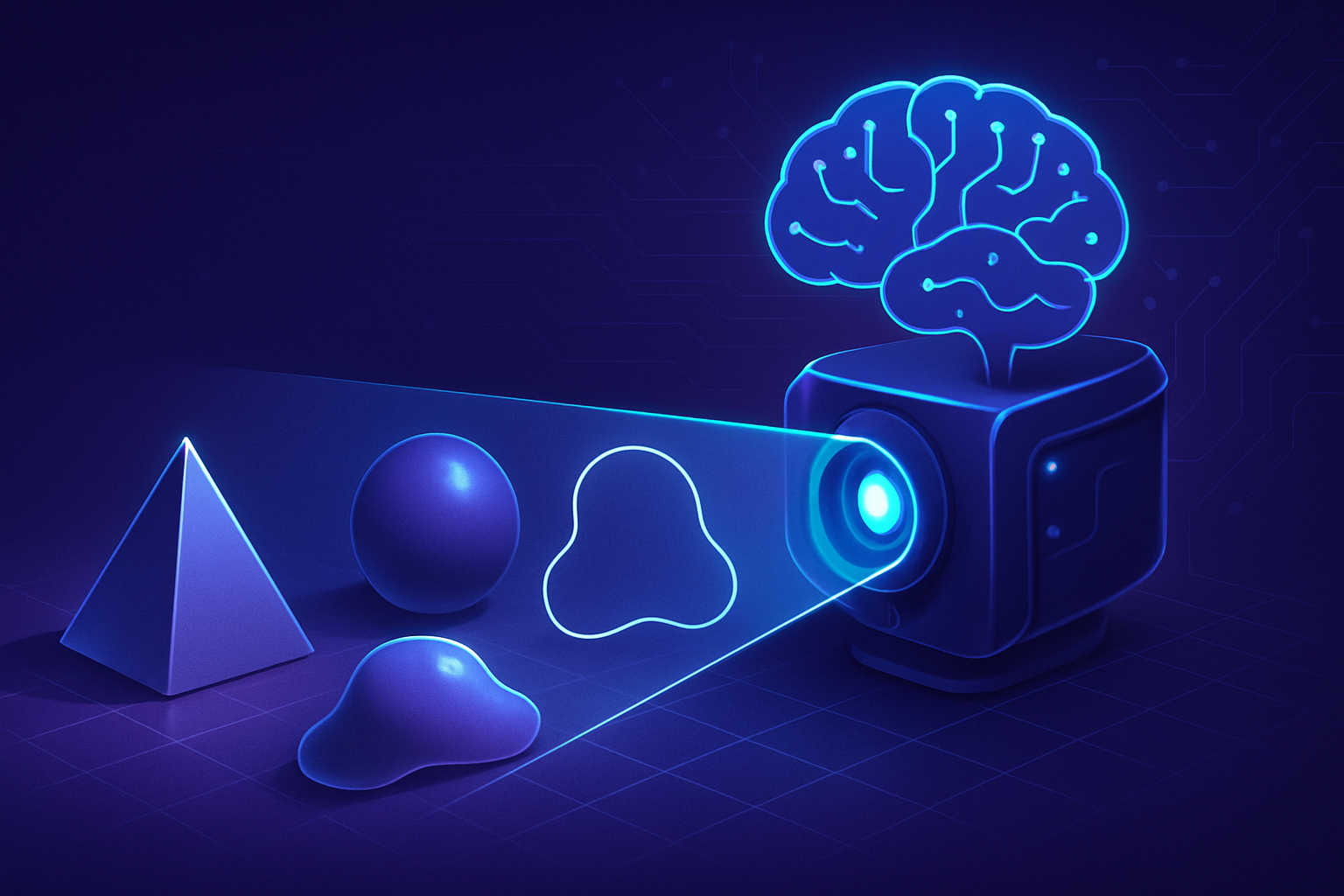At MIT, innovative researchers are coming together to redefine the landscape of artificial intelligence. The launch of the consortium on the impact of generative AI marks an era where creativity and technology merge. The bold projects presented, ranging from education to urban sustainability, reflect a commitment to addressing pressing societal issues. The promising results, arising from 180 expert proposals, pave the way for revolutionary applications. This carefully orchestrated consortium embodies a collective ambition for transformation.
Launch of the Generative AI Impact Consortium
The MIT Generative AI Impact Consortium (MGAIC), a presidential initiative, was launched in February of this year. Led by the MIT Office of Innovation and Strategy, this consortium aims to explore innovative applications of generative AI. Researchers were invited to submit proposals to study high-impact uses of artificial intelligence models.
Massive Response from Researchers
This initiative generated considerable enthusiasm, with 180 submissions from nearly 250 faculty members. These proposals come from all schools at MIT, thus consolidating the growing interest in the field of AI. The massive response follows the Generative AI Week organized by MIT, which also called for the drafting of impact papers.
Project Selection and Collaborative Approach
As a result of this process, 55 proposals have been chosen to receive the first startup grants from the MGAIC. Several other projects have been selected to be funded by member companies of the consortium. A launch event took place on May 13, where more than 30 funding recipients presented their ideas to the MIT community, illustrating this collaborative dynamic.
Innovative Proposals Presented
The presentations highlighted several bold projects:
AI-Driven Tutors and Literature Education
Ola Ozernov-Palchik, a researcher at the McGovern Institute for Brain Research, proposed an enhancement of AI tutors for students from kindergarten to seventh grade. This project aims to reduce disparities in literacy.
jam_bots: Real-Time Collaborative Agents
Anna Huang and Joe Paradiso, professors at the MIT Media Lab, presented the project titled “jam_bots”. This initiative aims to enrich collaboration between humans and AI for live musical improvisations, thereby enhancing artistic interaction.
GENIUS: Generative Intelligence for Urban Sustainability
Norhan Bayomi, a postdoctoral researcher at the MIT Environmental Solutions Initiative, addressed the need for a standardized approach to evaluate the climate policies of cities. The “GENIUS” project aims to fill this evaluation gap.
Commitment of Consortium Leaders
Georgia Perakis, interim dean of the Sloan School of Management, emphasized the MIT community’s willingness to take the lead in the realm of generative AI. Consortium leaders, such as Anantha P. Chandrakasan, expressed their gratitude to the founding members of the consortium for their support. Collaboration among all divisions of MIT has been a determining factor in creating this initiative.
Exchanges during the launch reflect the collective motivation to turn this vision into reality. A notable passage from Georgia Perakis’s remarks stated: “We are at the forefront of a historic moment.”
The MGAIC embodies MIT’s desire to position itself as a major player in the future of AI, all while acting with responsibility and excellence. The initial successes set a promising precedent for the continuation of innovative projects in this rapidly expanding field.
Frequently Asked Questions About the Bold Ideas of MIT Researchers on Generative AI
What is the MIT Generative AI Impact Consortium?
The consortium, launched in February this year, is a presidential initiative led by the MIT Office of Innovation and Strategy, aimed at studying high-impact uses of generative AI models by supporting innovative projects.
How many proposals were submitted for the initial grants of the consortium?
A total of 180 proposals were submitted by nearly 250 faculty members, demonstrating the growing interest in AI within the Institute.
What are some themes of the projects selected for the grants?
The selected projects address a variety of themes, including early education, musical collaboration between humans and AI, and the evaluation of climate policies of cities.
Who presented the proposals during the launch event?
More than 30 funding recipients presented their proposals to the MIT community at a launch event, reflecting their commitment to AI innovation.
Who is responsible for leading the consortium?
The consortium is led by Anantha P. Chandrakasan, who is also the dean of the School of Engineering, in collaboration with other deans and faculty members from various schools of MIT.
How do industry members contribute to the consortium?
The founding members of the consortium provide financial and strategic support, thereby facilitating the implementation of innovative projects and broadening research horizons in AI.
What is the long-term goal of the generative AI impact consortium?
The aim is to establish a solid foundation for the ethical and responsible research and development of generative AI, while positioning MIT as a leader in this rapidly expanding field.
Why is it important to support generative AI in academic research?
Support for generative AI fosters innovation, allows for the addressing of critical societal challenges, and engages researchers in collaboration, thereby increasing the impact of their work on society.






